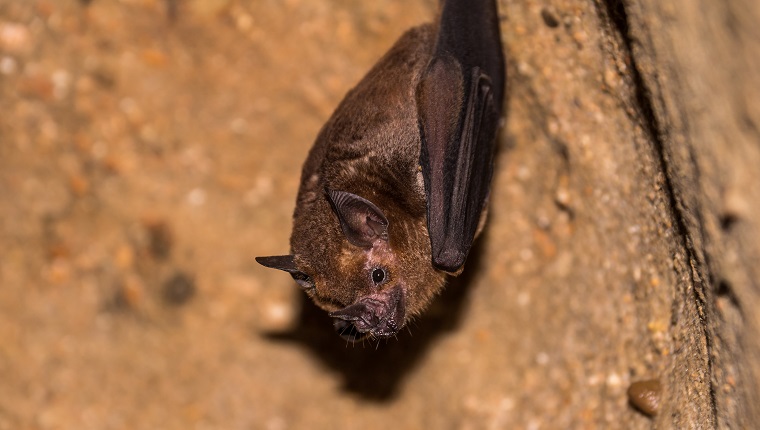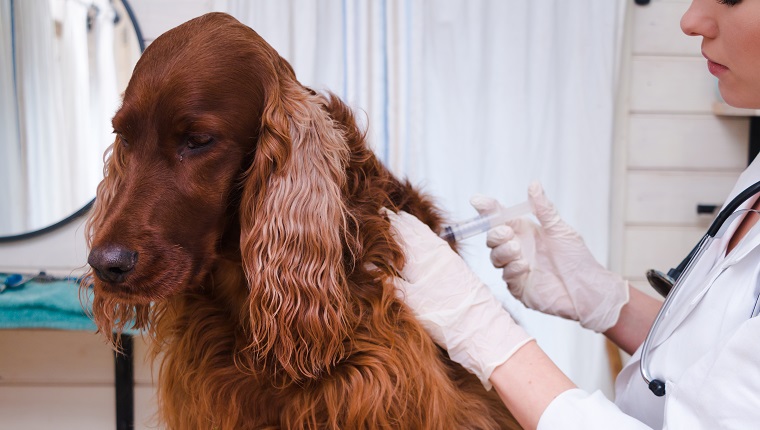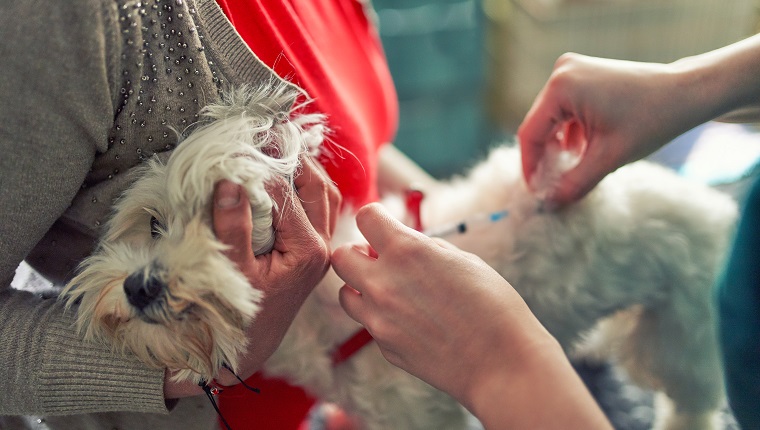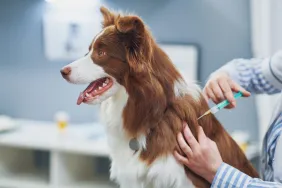In a news release issued by the Oneida County Health Department, a dog out of Whitestown, New York tested positive for rabies after coming into contact with a bat.
One of the troubling things about this story is that the dog was current on their rabies vaccination. It’s a cautionary tale for all of us dog parents to exercise caution should we live in, or go into, an area with bats, even if our dogs have received their vaccines.
The bat in question here was collected and sent to the New York State Department of Health Wadsworth Center. How the exact bat was found or how the dog was exposed to it were not included in the Syracuse report.
The Wadsworth Center tested the bat positive for rabies.
Not The First Rabies Incidence In The Area

Recently, on October 19th, another positive rabies case emerged in the area. In that case, it was a skunk and was only identified due to a routine check by USDA Wildlife Services.
Just in Onondaga County, alone, there have been 14 rabies cases in 2020. These included five raccoons, four bats, two skunks, one fox, one dog, and one cat.
Given how regularly animals such as these roam through our neighborhoods where our pets also spend time, we should stay extra vigilant.
How To Identify Signs of Rabies

According to the Onondaga County Health Commissioner, Dr. Indu Gupta, signs of rabies “can take several weeks to several months” to become apparent.
When signs do present themselves, animal behaviors include acting angry, acting unusually shy or needing to stay really close to you, drooling more than usual, or foaming at the mouth.
If your dog comes into close contact with a wild animal, health department officials recommend contacting your local animal control immediately. You must also seek veterinarian assistance.
“Although rabies is fatal and there is no treatment, it is preventable in both humans and pets,” says Gupta. “If a pet has contact with a wild animal, consult your veterinarian immediately for care and a rabies booster if necessary.”
Prevention is always paramount, but stay aware of your local surroundings regardless.
It is mandatory for all dogs and cats to have a rabies vaccination at three months of age, at one year, and then subsequently, once every three years. Ensure that your dog stays current, even if they are primarily an indoor dog.
DogTime has a full guide to the symptoms, causes, and prevention of rabies in dogs here!
Do you have any experience with a dog that has tested positive for rabies? How do you make sure to prevent this disease in your dog? Let us know in the comments below.









